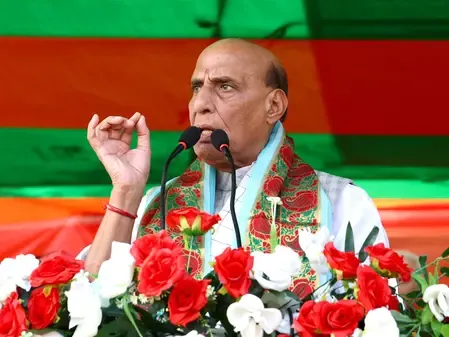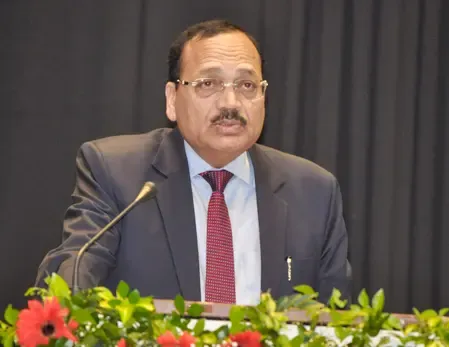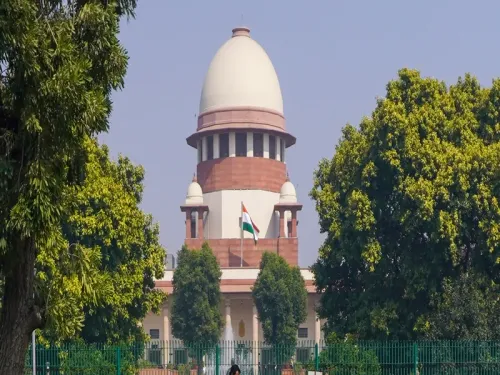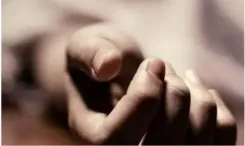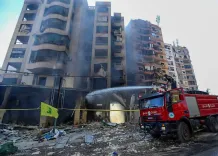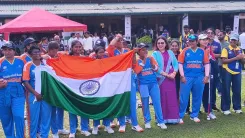What Are the Recent Atrocities Against Hindus in Bangladesh?
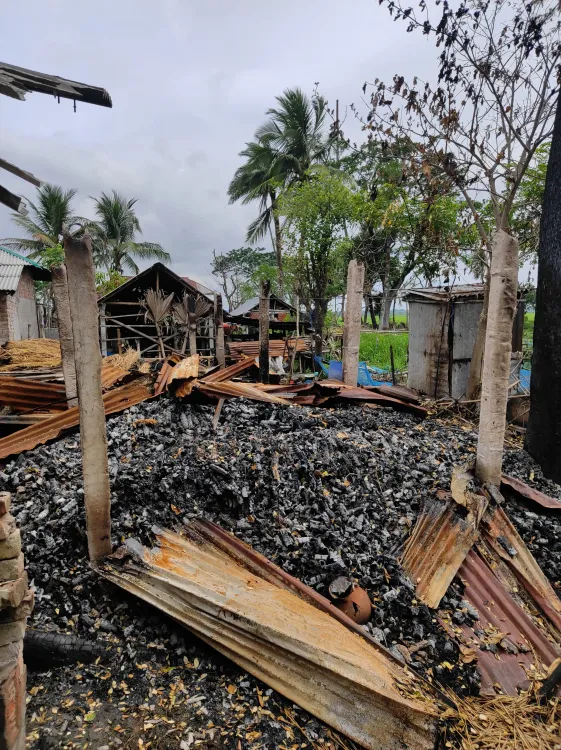
Synopsis
Key Takeaways
- Atrocities against Hindu families in Abhaynagar highlight systemic issues.
- Involvement of local and governmental authorities raises serious concerns.
- The need for immediate justice and accountability is crucial.
- Survivors face ongoing challenges with displacement and lack of support.
- International oversight may be necessary to protect minority rights.
Dhaka, June 20 (NationPress) The Human Rights Congress for Bangladesh Minorities (HRCBM) brought to light a recent horrific communal assault in Bangladesh, where over 18 homes belonging to Hindu families were looted, vandalized, and set ablaze in the southwestern Abhaynagar Upazila.
Seeking justice, the rights organization submitted new evidence to the International Criminal Court (ICC), alleging involvement at the highest levels of the interim government led by Muhammad Yunus.
The HRCBM unveiled a disturbing series of images depicting the aftermath of the communal attack, showcasing burned structures, collapsed buildings, blackened walls, and the charred belongings of the minority Hindu community.
The organization stated that the devastation was caused by a mob from the local Muslim-majority population, forcing entire families to escape, leaving behind smoldering ruins and empty village streets.
"The violence began late on May 24, 2025, following the murder of Torikul Islam, President of the opposition Krishak Dal in Jessore, who was killed over a land dispute related to a fish enclosure. Initially tied to personal and property conflicts, the murder quickly sparked communal violence," the HRCBM noted.
"A mob from the local Muslim-majority community targeted Hindu households in Dhor Moshihati village, stealing valuables, burning granaries, abducting 31 cattle, and setting fire to 18 homes. A young Hindu nursing student, Sagar, was kidnapped during the chaos and remains missing. The attack forced nearly all Hindu families to flee in fear, leaving only the elderly and sick behind," it continued.
Recounting the terrifying night when fear engulfed the Hindu community, the human rights organization expressed deep concern about a public statement made by Yunus in a now-deleted social media post.
In that post, Yunus reportedly blamed "some Hindu villagers" for the murder and characterized the violence as "retaliatory" over a business dispute, dismissing reports of targeted minority violence as "propaganda."
The HRCBM argued in its supplementary submission to the ICC that "the statement legitimized communal violence against a specific group and indicated a broader pattern of systemic persecution and impunity."
Following the attack, the HRCBM visited Dhor Moshihati village to document the destruction, collect testimonies, and evaluate the immediate needs of displaced families.
"The findings of our team — including photographic evidence of the charred homes, looted properties, and empty granaries — were integral to HRCBM's submission to the ICC. Survivors described their terror as the mob, drawn from the local Muslim-majority community, stormed their homes late at night, forcing them to escape with only the clothes on their backs," stated the organization.
Revealing the atrocities, the HRCBM noted that no police report (FIR) has been filed against the attackers, and the delayed response from the fire service exacerbated the destruction.
Furthermore, it highlighted that none of the Bangladeshi NGOs receiving foreign aid or the UN office in Dhaka provided any legal or humanitarian support to the affected families.
"The Abhaynagar incident is part of a disturbing trend of communal violence in Bangladesh, where minorities — including Hindus, Buddhists, Christians, Ahmadiyyas, and Indigenous groups — suffer periodic mass attacks, often without accountability," the HRCBM concluded.
In its submission to the ICC, the human rights body called for an urgent preliminary examination into this incident and other crimes against humanity targeting minorities.
The HRCBM demanded the immediate arrest and prosecution of those responsible for arson, looting, and abduction, justice in Torikul Islam's murder without scapegoating minorities, and rehabilitation and protection for displaced families. Additionally, it called for an investigation into official negligence, including the failures of the fire service, and international oversight to protect minority rights.


